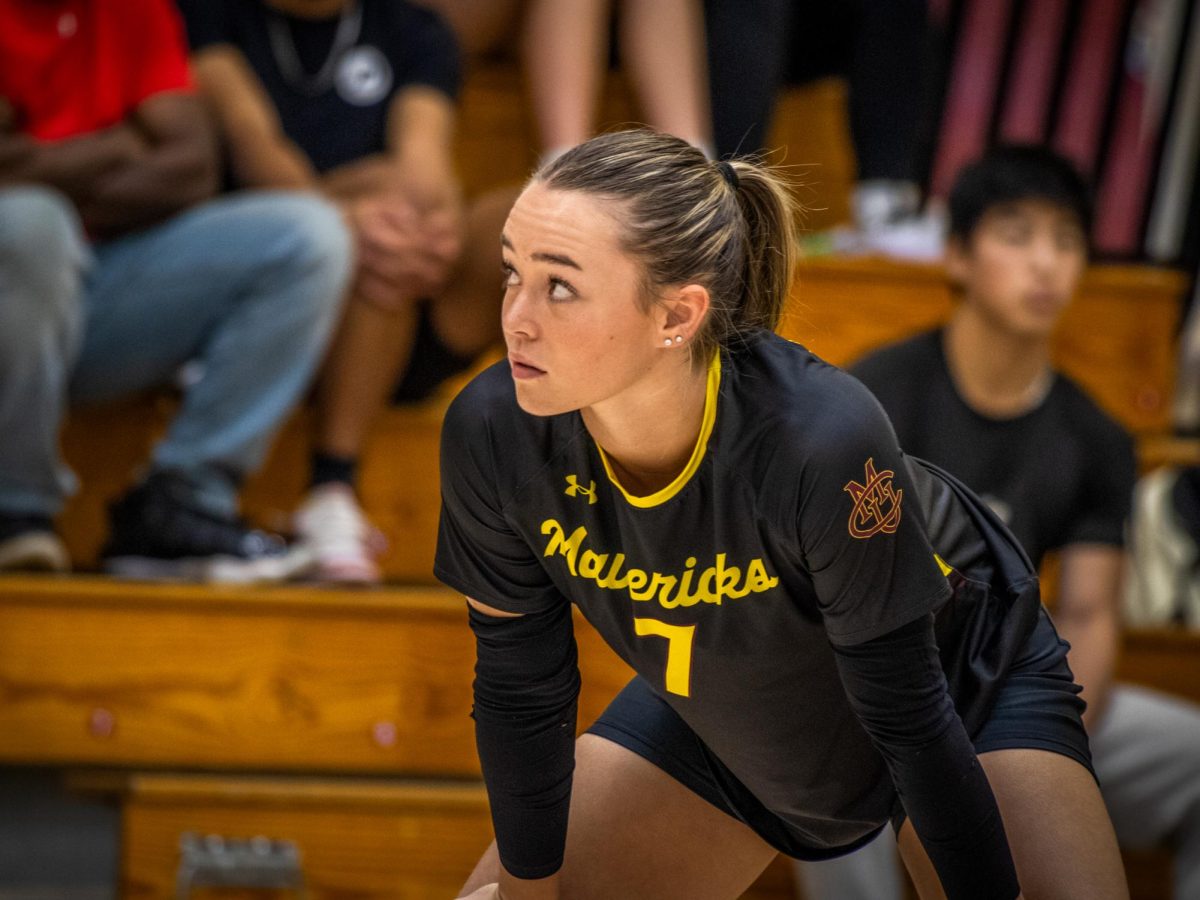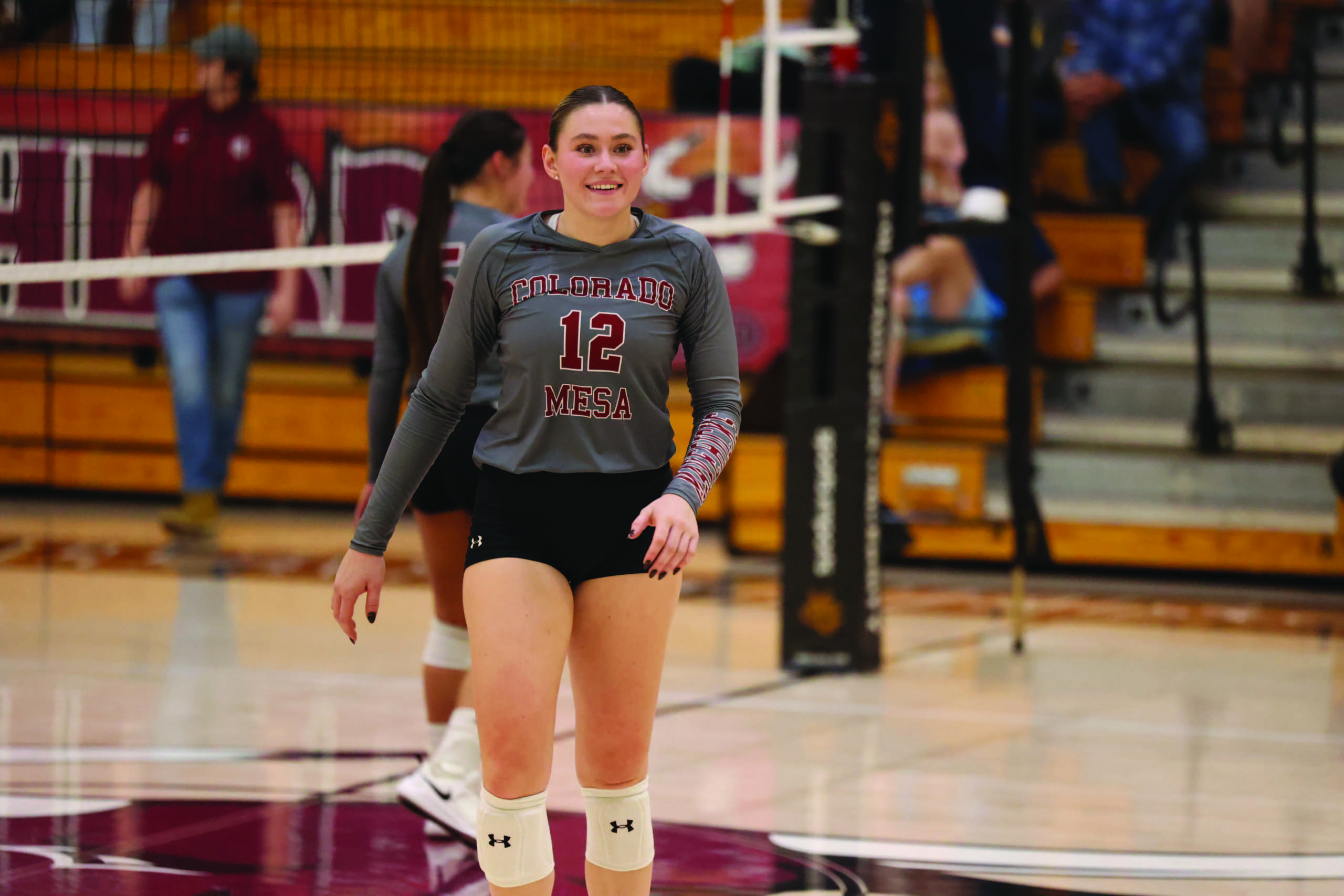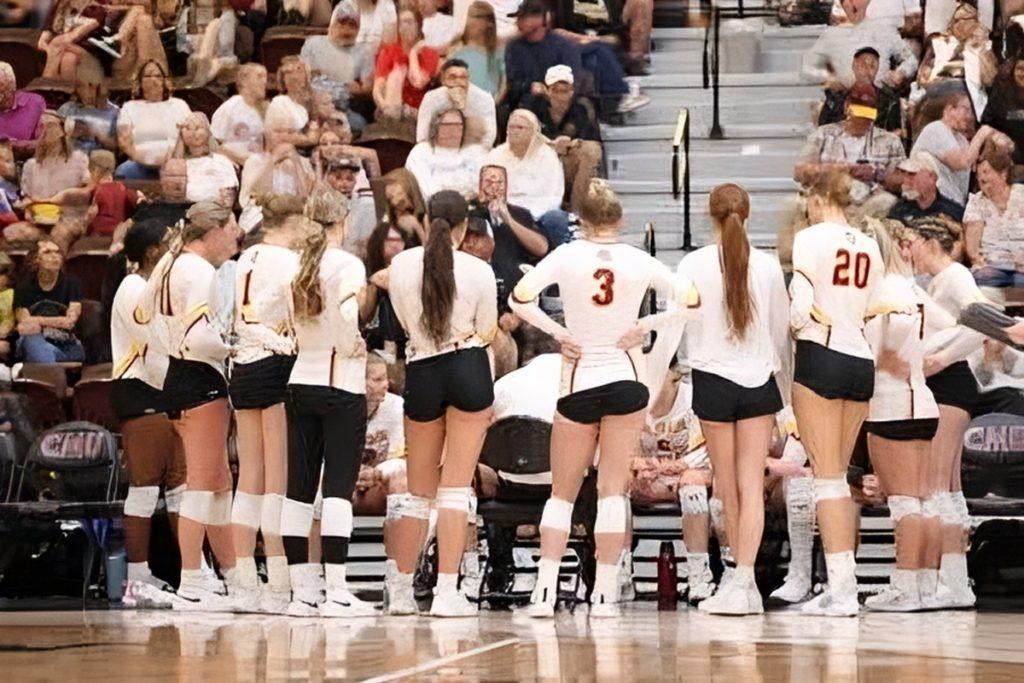Q: What is your favorite part about coaching CMU volleyball?
A: Wow that’s a tough question. How much time do we have? There’s a lot of things that I like. One, I really like how Colorado Mesa has changed so much since I’ve been here—just the level of athletes we can get here. I love that the kids at the Division II level love volleyball still. At the D1 level where I came from, they were more of athletes first and students second and didn’t necessarily love the sport anymore. But all the athletes we’re dealing with still love the sport, still want to be here, still want to get better, and I just really like the drive, and working with them every day.
Q: After winning an RMAC Tournament title and advancing to the second round of the NCAA Division II South Central Regional Tournament last year, what are your goals for this season?
A: It’s about the same. You know, every year is a little bit different. We’re a little dinged up right now; we have some injuries that we’re dealing with and we have some starters, or potential starters, that are on the bench or healing from their injuries. So, year in and year out we feel like we should be competing for championships, and again that’s our goal and that means the RMAC championships and uh the NCAA championships after that and it might not be us this year, but I think within the next five years there will be a team that breaks through and wins a national championship this year.
Q: How does this season feel different from any of the other seasons you have coached here?
A: Every year is a little bit different just because you have 20 individuals that are very unique. Last year we had two really strong personalities in Natalee Todd and Taylor Woods that graduated. So it’s a whole new team and the new personalities are starting to emerge. Camille Smith is one of our middle blockers who used to be really quiet. She’s showing a lot of leadership. Kerstin Layman is our libero, and she was kind of quiet. She was behind our libero Taylor Woods last year, and so her personality is really coming out. So it’s just kind of fun. As Forrest Gump would say, “it’s like a box of chocolates, you never know what you’re gonna get.”
Q: Last year you had your first NCAA First Team All-American named in Kasie Gilfert, how did that feel?
A: That was awesome, and that’s all on Kasie. Kasie does a great job for us, and she deserves it. When I heard that’s the First-team All-American we ever had, and I said “wow. Really? We’ve had a lot of good players.” That list is only 12 deep, so there’s 12 players in the country. So she’s one of the best 12 in the country. So I get it. Yep, you know what, it makes sense that we haven’t had a First-team All-American in the past. She has a great shot at it again this year, but really all the credit goes to her and her teammates to help her get there. I just kind of help guide her there.
Q: Would you say it’s your goal for her to get that title again?
A: Not necessarily. I think even Kasie would tell you she would rather have the team do better than we did last year than her finish All-American. Absolutely she can do that again, and I think if we’re successful, she will become a First-team All-American, but it’s not our goal. I think that if we do well as a team, the individual accolades will follow.
Q: Your overall record last year was an impressive 24-7. What do you predict for this year’s end score?
A: I think we’ll be in the same ballpark. I never go in thinking we’re ever going to lose a match, but I also like to schedule really tough. We’re playing the number eight team in the country on Saturday, and then next week we’re going to the number [18] team in the country—Drury… So we schedule tough on purpose to see what we’re made of and see what we need to improve on to get to the next level. So we’re okay taking losses, especially early in the season if we can learn from them and get better. So yeah 24-7—I think that’s always a good goal. I never like our losses to get in the double digits, and if we’re going to really compete for an NCAA championship, those losses are probably going to be five or less.
Q: What kind of environment do you like to create for the girls during practice and games?
A: Practices, we like to have, as one of the freshmen told me today, it’s a lot more intense than it was in high school. So it’s a pretty intense practice and we like it to be competitive so that you’re always competing for your position, or if you’re not on the first side, that you still have a shot to get on to the first side. So it’s very competitive and very intense.
And then in the matches, we just want them to be who they are. If you’re a great athlete, and that’s why we recruited you, that’s what we want to see on the floor and the matches. We really try to cultivate that; we also try to get them to feel very comfortable within the team. It’s kind of a family for us, so we just want to make sure that they feel really comfortable in everything that we’re doing, that they’re comfortable talking to us, they’re comfortable coming to my office, and they’re comfortable talking to the upperclassmen. And I think most of the kids on the team would tell you it’s a family, and it’s just a nice feeling to be on the team.
Q: What kind of culture are you trying to cultivate in the program for these 15 years you have been coach, and where would you like the culture to go in the future?
A: The culture question for me changes almost a year in and year out. Sometimes, we really need to work on the team cohesiveness and how tight they are. I think this year’s team is very tight, and it’s almost like we need the culture to be that they’re willing to hold each other accountable. If we’re really good friends, and we trust each other, then we should be able to hold each other accountable. So that’s kind of our goal this year is to make sure that every practice we go into that we’re trying to get better. It’s okay to hold your teammate accountable because we have that tightness and that closeness.









